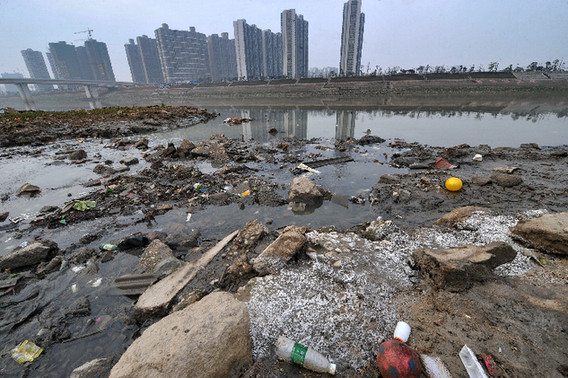Environment may be issue at two sessions
 0 Comment(s)
0 Comment(s) Print
Print E-mail China Daily, February 26, 2013
E-mail China Daily, February 26, 2013
Environmental issues are expected to be hot topics at the upcoming two sessions, say representatives who are busy preparing proposals.
"This year's two sessions may value the importance of environmental issues at an unprecedented level," said Zhao Jindong, a biology expert and academic with the Chinese Academy of Sciences.
"I am working on a proposal about water resources protection in the Yangtze River, and the country's two largest freshwater lakes: Poyang Lake and Dongting Lake," said Zhao, a member of the National Committee of the Chinese People's Political Consultative Conference.
Soil pollution is the topic Wang Mingwen has been preparing for the coming two sessions.
"With the heated topic of airborne pollution and the recent groundwater pollution, the Environmental Protection Ministry must be under great pressure this year," said Wang, a law expert from Sichuan province and a member of the National People's Congress.
Environmental issues have attracted the most public attention, starting with PM2.5 — particulate matter smaller than 2.5 microns that can enter people's lungs and bloodstream.
"China has entered the era of 'three Ps': GDP, CPI and PM2.5," Environment Minister Zhou Shengxian said at a national-level environmental conference in January.
For the first time, PM2.5, a key indicator of environmental quality, was mentioned by an official in the same breath as GDP — gross domestic product, which illustrates economic development, and CPI, the consumer price index that shows the price level.
"The public is demanding improvement in environmental quality just as much as they are asking for a stable price level," said Zhou.
Unlike other forms of pollution, airborne pollution can affect a larger group of people regardless of their income and social status.
Large areas of the country have been shrouded in smog and haze four times in January, reaching more than 1.4 million square meters.







Go to Forum >>0 Comment(s)